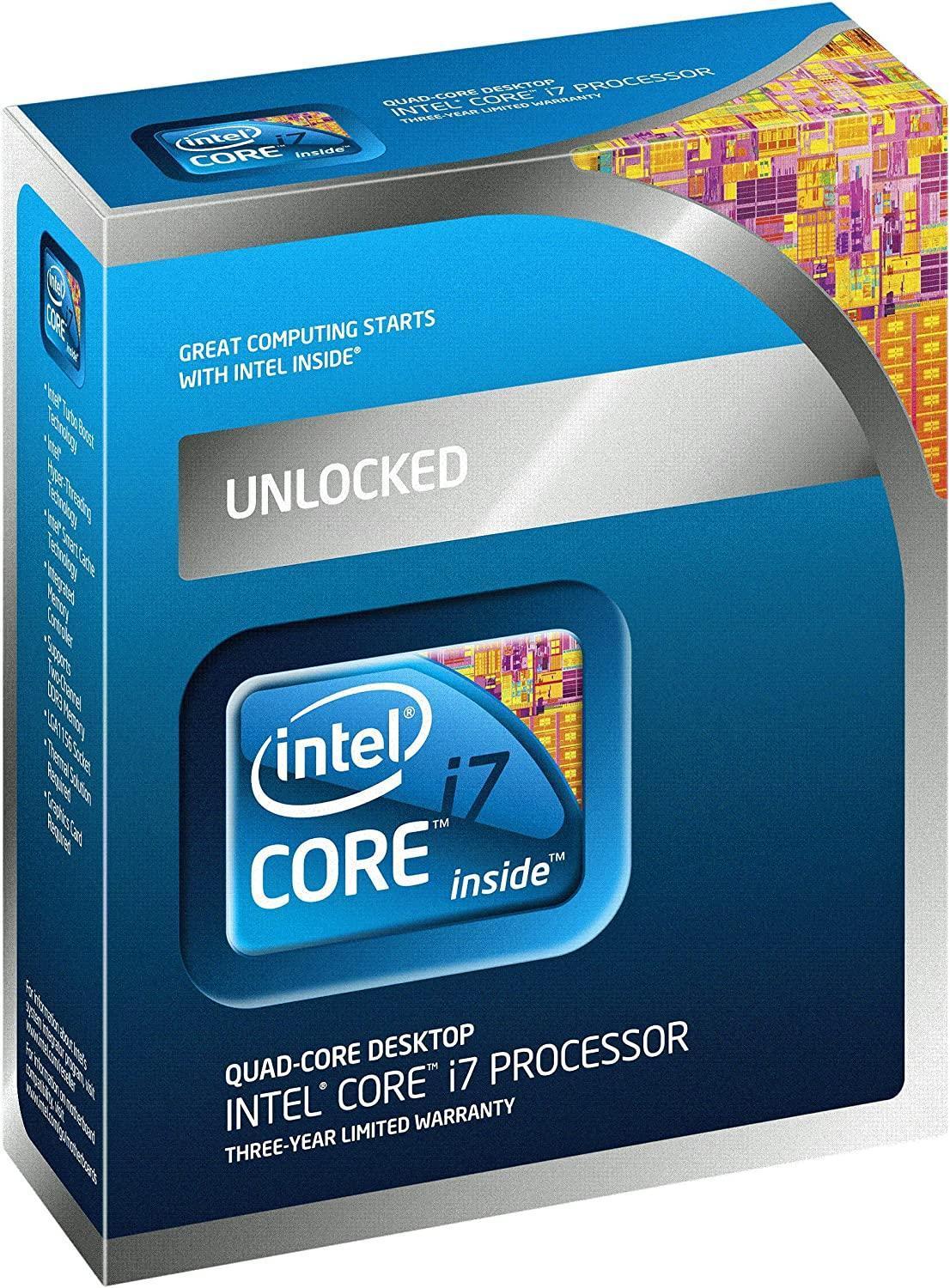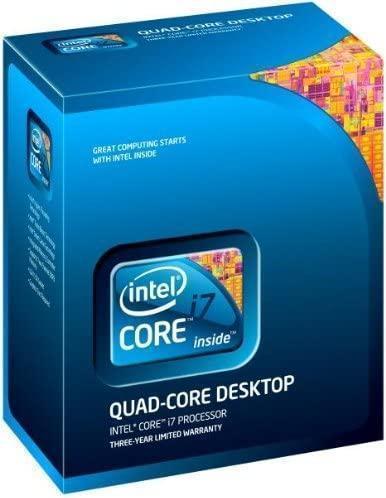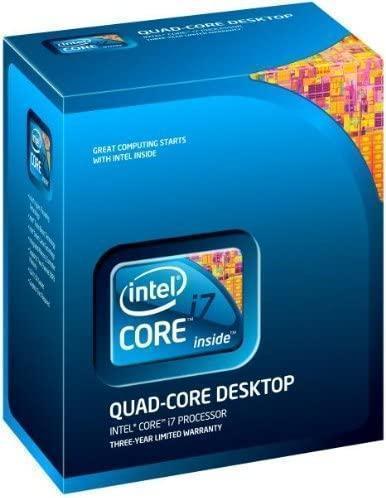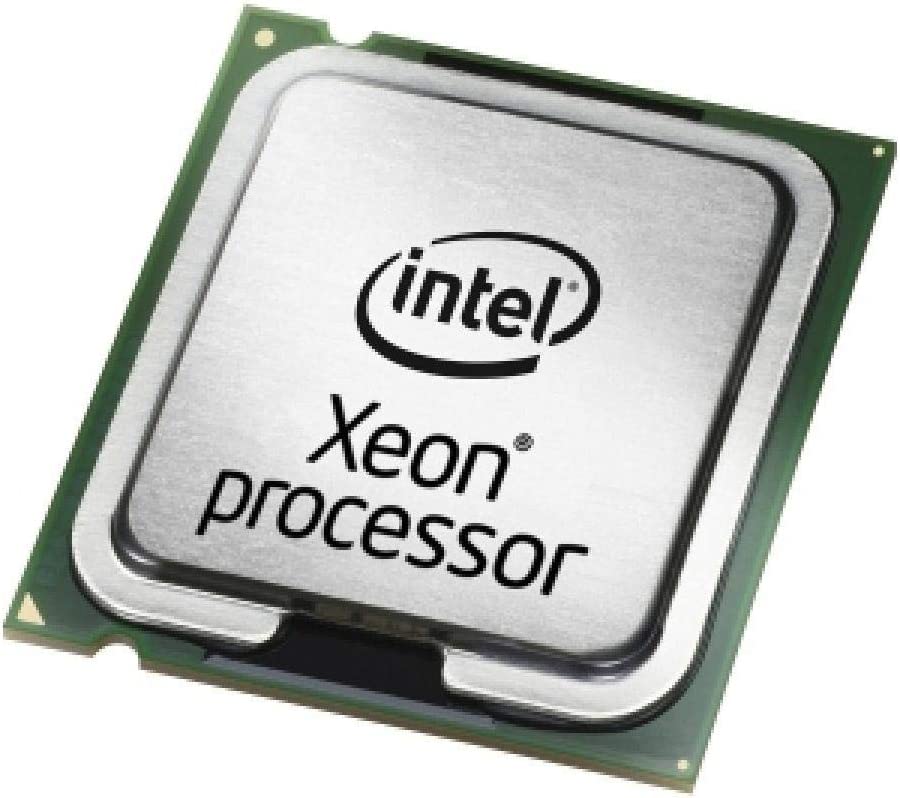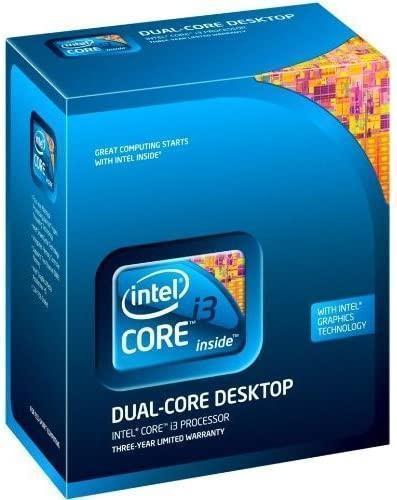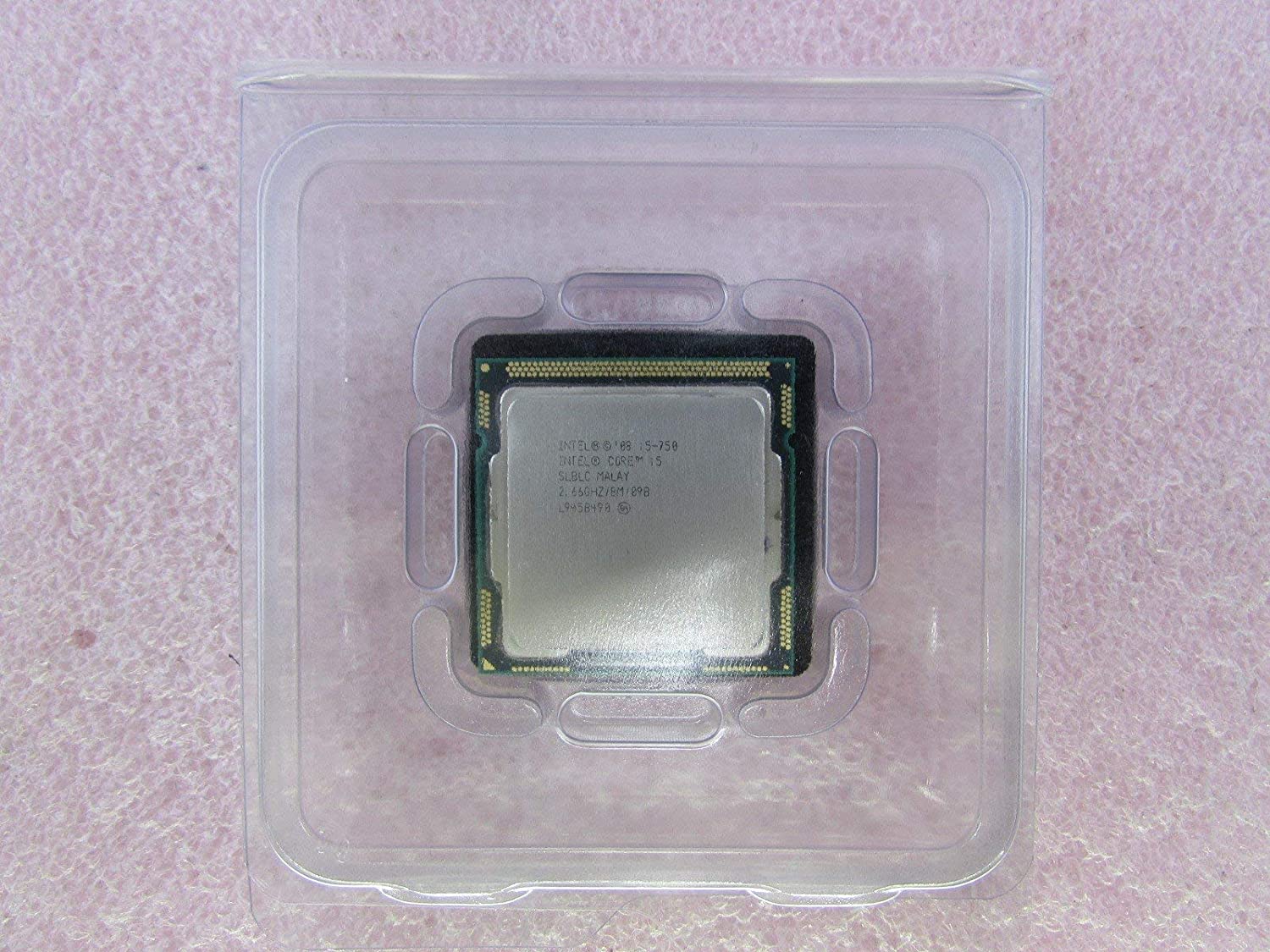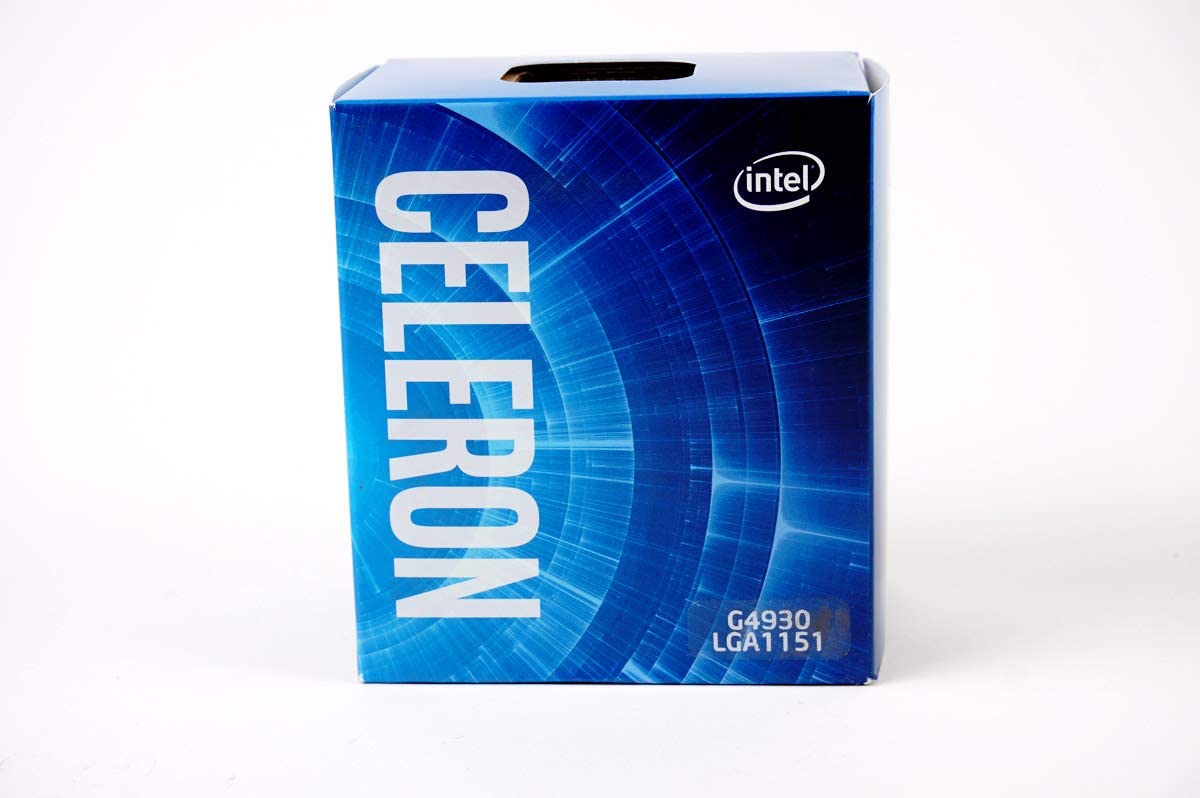Do you really want to know about the best and most suitable LGA 1156 CPU for you? Don’t worry and just read ahead, I’m very sure that this will be really helpful for you and will provide you with the right guidance. In the below-given content, there have been stated mainly seven best CPUs, important details about them, their different functions, their features, pros and cons, a conclusion, and some FAQs. So let’s begin.
Check also: Best CPU for RTX 2070
Because they improve and speed up connectivity between the CPU and motherboard, Intel LGA sockets are something to be proud of. The LGA 1156 is referred to as socket H1 and is one of many LGA sockets. This land grid array socket is used by Intel CPUs from the Xeon 3rd series, Core i3, i5, and i7.
Table of Contents
Best LGA 1156 CPU
It is mostly used by the first-generation CPUs of the aforementioned CPUs. Even though the most recent LGA sockets are preferred, 1156 is still used to upgrade older CPUs and to construct this specific socket-based PC. For whatever reason, you’ve reached the right site if you’re seeking the best LGA 1156 CPU. The LGA 1156 socket is the 1155’s predecessor, whereas the LGA 775 and 771 are the 1156’s successor.
It has a Flip-chip land grid array form factor and supports the DDR3 SDRAM memory channel. We have made an effort to list all varieties of these CPUs here because this socket is mostly used by the first generation Core i7, Core i5, Core i3, and 300 series of Xeon processors. Finding the finest LGA 1156 CPU for gaming, editing, or even a little overclocking may be aided by the discussion that follows.
1. Intel Core i7-875K Processor
This processor named Intel Core i7-875 is a highly quick processor right newly accepted by many. Setting up the BIOS settings and overclocking are both easy processes. It will hold up for you whether you are a dedicated gamer, an overclocker, or even enthusiastically do both.
The Core i7-875K is the finest LGA 1156 CPU to date in terms of speed, performance, and affordability. Once you get used to it, you’ll find the overclocking to be rock-solid and the gameplay to be pleasant. Since a heatsink is not provided, a cooler is also necessary.
However, it remains cold even when under load, so you do not need to purchase a potent cooler. Additionally, a strong GPU will be sufficient if you enjoy playing games with sharp and fluid visuals as well as working on videos and movies.
The performance of this processor, which has four additional simulated cores in addition to the four actual cores, is fantastic. Videos and movies can be rendered more quickly. It makes your system significantly better than it was previously and is the fastest LGA 1156 CPU to date.
Key features:
- 4/8 cores/threads
- 95W of TDP
- 2.5 GT/s Bus Speed
- 8 MB cache
- 45 nm-based lithographs
- The base clock speed is 2.93 GHz
- The Max turbo boost clock speed is 3.60 GHz.
- Two DDR3 memory channels that can accommodate 16 GB of memory
- 21 GB/s memory clock speed
Pros –
- Simple overclocking with a multiplier that can be unlocked.
- Much cheaper than comparable ones in pricing.
- Is more capable of generating and editing videos and films.
- Awesome at overclocking and gaming
- excellent LGA 1156 CPU.
Cons –
- Not seen many changes in its new version.
2. Intel Core i7-870 Processor
This Intel Core i7-870 Processor has an Integrated two-channel DDR3 Memory Controller and Hyper-Threading Technology. This processor has an 8 MB Smart Cache and has Turbo Boost Technology including the LGA-1156 package.
The processor has Intel Turbo Boost Technology which maximizes speed for demanding applications and this technology also accelerates the processor clock speed up to 20% to match your workload.
This processor can multitask up to 28% faster, so anybody can do more things at a particular given time. One can enjoy incredibly fast computing with fewer frustrating lags with this processor.
Key Features:
- Product Dimensions:4 x 7 x 8 inches
- Item Weight: 13.6 ounces
- Secondary Cache: 8 MB
- Wattage: 95 watts
- Cache Size: 8
- Processor Count: 4
- Reviews by Customers: 4.2 stars with 178 reviews by different-different customers
Pros –
- Affordable.
- Less thermally efficient turbo technology.
- Support for dual channel memory.
- Excellent potential for overclocking.
- Excellent performance.
Cons –
- A new LGA 1156 Motherboard is Required for a different CPU cooler.
- Expensive.
- Supports dual-channel memory architecture, not triple-channel.
3. Intel Core i7-880 Processor
This processor uses a 45nm architecture, which has a quadcore. Compared to its forerunners, it is much speedier. The performance of this 1156-socket CPU is excellent, and any contemporary game will run well on it.
One of the top CPUs in this category is this Intel-made model. It can operate at up to 3.50 GHz and offers 64-bit computing. Additionally, hyper-threading technology is supported. The Core i7 880 performs significantly better when virtualization technology from Intel is used.
The majority of this advanced computer processor’s performance is available when playing games. Although it was released in 2010, it is still very speedy to run current games and perform some productivity tasks.
It requires a good aftermarket cooler because it lacks integrated graphics. Additionally, it does not provide ideal outcomes for demanding multitasking or productive work
Key Features:
- 8 MB cache
- 2.5 GT/s of bus speed
- 4 threads and 8 cores with 45 nm Lynnfield technology
- 2 x DDR3 memory channels allowing a maximum memory size of 16 GB
- Base Turbo Frequency 3.06 GHz
- Maximum Turbo Frequency 3.73 GHz
- 16 x PCI Express 2.0 with 116 & 28 variants •95 W total TDP
- 21 GB/s maximum memory bandwidth
Pros –
- CPU with four cores.
- Supports Hyper-Threading.
- Successful gaming experience.
- Moderate overall performance.
Cons –
- No built-in graphics.
- Easily warms up.
- Not a lot of multitasking.
- Older prices may have been less expensive.
4. Intel Xeon Processor X3480
The Intel Xeon Processor X3480 is a dependable processor with good performance. This one uses 45nm technology and has a quad-core CPU as well. It has a smooth installation process and strong operating performance. If someone follows the instructions, to make it assemble it wouldn’t take more minutes.
The X3480 is unquestionably a superior option if you’re looking to replace your outdated LGA 1156 CPU, which is designed to update the entire system. It will operate twice as quickly as it did previously, and performance levels will soar. It functions quickly and accommodates additional synchronous threads.
Even though it lacks integrated graphics, it still has a lot to offer as a first-generation processor. The value and price, however, are not comparable. Although the price is expensive, there is no upgrade or performance improvement.
One of the quickest first-generation Xeon processors is the LGA 1156 CPU known as the Xeon X3480. It will continue to function normally even if the temperature rises too high. The included heatsink part will give you a somewhat improved cooling environment. However, if you play video games, multitask, or have a lot of work to accomplish, it might not be enough. This dependable processor is well-built and has a sturdy frame.
Key Features:
- 4 cores and 8 threads
- 45 nm lithography technology
- 2.5 GT/s Bus Speed
- 95 W of total TDP
- 8 MB cache
- The base frequency is 3.06 GHz
- 32GB maximum memory size
- 21 GB/s maximum memory clock speed
- Maximum of 16 x PCI Express 2.0
- 2 x DDR3 memory channels support
Pros –
- Quick and dependable
- Supports many synchronous threads and is •Simple to install
- Nice performance all around
Cons –
- No issues noticed till now.
5. Intel Core i3-550 Processor
An i3 CPU with good speed and potential is the Intel Core i3 550. It runs smoothly and efficiently. Pricing could not be better than this and is actually lower. Because of this, the price-to-performance value is still very high.
This one slaps whether you want to create a gaming PC or plan to conduct video/photo editing. It is economical and goes swiftly. Videos render quickly and smoothly. Both the overall performance and the gaming performance are incredible.
The dual-core technology facilitates and guarantees effective multitasking. Even intensive multitasking is supported. Multitasking in four directions is usually preferable.
You just need to follow the proper directions, and the installation procedure is similarly straightforward and uncomplicated. The Intel Core i3-550 runs incredibly well and lasts a very long time, whether it is used in a gaming or non-gaming computer. It has the same HD integrated graphics as the earlier processors.
Key features:
- 4 MB cache
- Two cores and 4 threads
- 32nm lithography technology
- 73 W of total TDP
- 21 GB per second maximum memory bandwidth
- Intel HD integrated graphics
- Supports two displays
- The base frequency is 3.20 GHz
- 2 x DDR3 memory channels
- 2.5 GT/s Bus Speed
- 16.38 GB max memory
- 16 x PCI Express 2.0
Pros –
- Cheap price.
- Good gaming experience for all the players.
- Includes integrated graphics and cooling.
Cons –
- Not good at multitasking.
6. Intel Core i5-750 Processor
The Intel Core i5 750 processor is ideal for a gaming setup. It is now the most affordable and effective LGA 1156 CPU on our list. Currently, it is the most economical choice, and the value is excellent. It is a superb CPU with “oeLynnfield” architecture.
Together, the four cores make the system speedier and function at a high level. I’m sure you are not unaware of the fact that your BIOS is current. It heats up really quickly, so you might need a better cooler.
This one can readily handle recent, high-end games that you play. Additionally, it effortlessly manages overclocking. Its low operating frequency prevents it from running many threads at once.
Key Features:
- 8 MB Intel cache
- 4/4 cores/threads
- 2.5 GT/s Bus Speed
- 95 W of total TDP
- The base frequency of 2.66 GHz
- Maximum turbo boost frequency of 3.20 GHz
- Technology for 45nm lithography and two DDR3 memory channels
Pros –
- Lots of room for overclocking.
- Affordable great gaming processor.
Cons –
- Without hyperthreading.
- No built-in graphics.
- Easily warms up.
7. Intel Celeron G4930
The Celeron G4920 belongs to Intel’s 8th Generation “Coffee Lake” product range architecturally. This powerful processor has two CPU cores that run at 3.2GHz and does not support Turbo Boost or Hyper-Threading. Its 2MB internal L3 cache is also modest by today’s standards.
Intel UHD Graphics 610 is the name of the integrated graphics processor included in the Celeron G4920. There are just 12 execution units (EUs) running at 1,050MHz in this solution.
Features:
- 2/Core and 2/Thread.
- Compatible with motherboards using the Intel 300 Series chipset at 3.2 GHz.
- It could be necessary to update the bios for motherboard compatibility.
- Complies with Intel Optane Memory.
Pros –
- At $42 it is a very good deal.
- Newly developed.
- Includes a CPU cooler without charging extra.
Cons –
- Comparatively speaking, multitasking. •Competence is average.
- Low boost speed for all cores.
- Mediocre all-around game performance.
FAQ’s
Q: What is LGA 1156?
Ans: LGA 1156 is a CPU socket type developed by Intel for their Clarkdale and Lynnfield processors. It was commonly used in motherboards released around 2009-2010.
Q: Which CPUs are compatible with LGA 1156?
Ans: LGA 1156 is compatible with a range of Intel processors, including the Core i3, Core i5, and Core i7 series. Some notable models include the Core i7-870, Core i5-750, and Core i3-530.
Q: Are LGA 1156 CPUs still relevant today?
Ans: LGA 1156 CPUs are considered outdated for modern gaming and high-performance tasks. However, they can still be useful for basic computing, and office tasks, and as a budget-friendly option.
Q: Can I upgrade my LGA 1156 CPU?
Ans: Upgrading an LGA 1156 CPU is possible if your motherboard supports a compatible CPU model. Check your motherboard’s specifications and compatibility list before upgrading.
Q: Are LGA 1156 CPUs good for gaming?
Ans: LGA 1156 CPUs can handle older and less demanding games. For modern gaming, they may struggle to provide satisfactory performance, especially for graphics-intensive titles.
Q: Is overclocking possible with LGA 1156 CPUs?
Ans: Yes, many LGA 1156 CPUs can be overclocked, but it’s essential to have a compatible motherboard and adequate cooling solutions. Overclocking can improve performance to some extent.
Q: What are the limitations of LGA 1156 CPUs?
Ans: LGA 1156 CPUs have limitations regarding their maximum performance, power efficiency, and compatibility with modern hardware and software. They lack some of the latest features and instructions found in newer CPUs.
Q: Where can I buy LGA 1156 CPUs and motherboards today?
Ans: You may find LGA 1156 CPUs and motherboards on the used or vintage hardware market, as they are no longer in production. Online marketplaces and forums specializing in computer hardware might be good places to look.
Q: What are some alternatives to LGA 1156 CPUs for a budget build?
Ans: Alternatives include newer CPUs on the secondhand market, or you can consider modern budget-friendly options from Intel or AMD, like their Pentium or Ryzen 3 series.
Q: Is it worth building a PC with LGA 1156 components in 2023?
Ans: Building a PC with LGA 1156 components in 2023 may be suitable for certain use cases, like basic office tasks or educational purposes. However, for gaming and demanding applications, it’s generally better to invest in more modern hardware.
Q: Is the Intel i7 875K capable of being overclocked?
Ans: The multiplier on the Intel Core i7-875K chip is unlocked. Additionally, it features a simple BIOS setting that makes the overclocking process simpler.
Q: Which LGA 1156 CPU is the best for gaming?
Ans: The Intel Xeon Processor X348 performs well in both work and games. Additionally, it operates quickly, which improves game performance.
Q: Which LGA 1156 CPU is the quickest?
Ans: There are so many factors that should be considered while selecting the best CPU for your system. One of the most crucial things to keep in mind is speed. The CPU you consider must be able to work at 2.8 GHz or above. Then, consideration should be given to the generation, cache memory, and the number of cores. Another factor to think about is the supporting capability. The processor should operate at top speed.
I hope the content was impressive and informational for you. If the above information is useful for you, then please do share this with everyone else.

Kiran Kotte is a 25 years old Youtuber. He is a tech geek and also codes sometimes. He writes on various topics like Technology, Blogging, Web designing, and SEO. He runs various other blogs under various niches.

